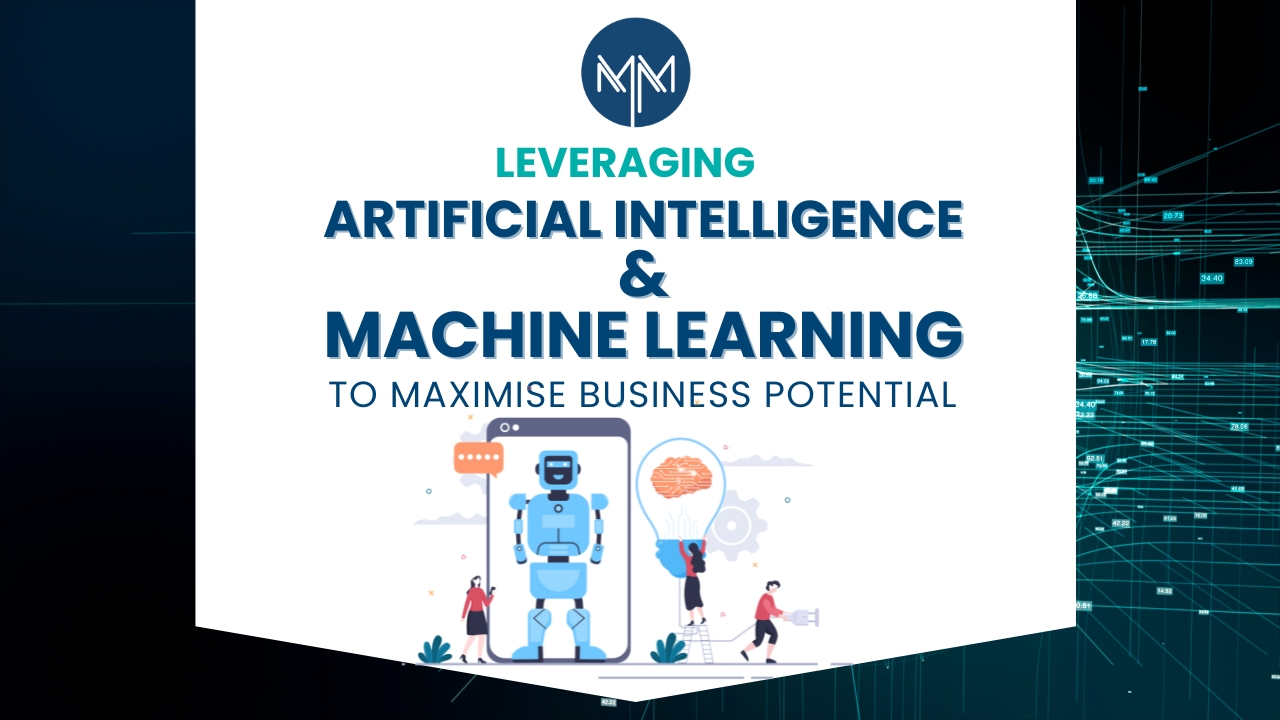In today’s digital era, it has become difficult for businesses to keep up with the expeditious pace of technological innovation.
However, Machine Learning (ML) and Artificial Intelligence (AI) have emerged as transformative forces, reshaping the way businesses operate and interact with customers.
Additionally, according to the reports, the artificial intelligence (AI) market has grown significantly worldwide, and as of 2022, it was estimated to be worth USD 454.12 billion.
With a compound annual growth rate (CAGR) of 19% from 2023 to 2032, projections show a startling surge to almost USD 2,575.16 billion by 2032, underscoring the enormous potential and quick development of AI technology.
So, the question follows:
Why are companies relying so heavily on AI and ML?
These cutting-edge technologies hold the promise of releasing new opportunities, driving innovation, and propelling businesses toward success.
The term artificial intelligence (AI) refers to a wide range of tools and methods that let computers mimic human intelligence. It entails the creation of algorithms that enable computers to carry out cognitively demanding tasks including pattern recognition, problem solving, and decision making.
On the other hand, as a branch of artificial intelligence, machine learning (ML) focuses on creating algorithms that let computers learn from data and get better over time without needing to be uniquely programmed.

Why and how AI solutions are integrated into key organizational tasks:
The incorporation of artificial intelligence (AI) solutions into critical organizational tasks is on the rise because of its capacity to improve productivity, efficiency, and decision-making. Here’s how and why AI is changing tasks within organizations:
- Automated: Artificial intelligence (AI) frees up human resources for more strategic endeavors by automating monotonous jobs like data entry and processing.
- Analysing Data: Large datasets are analyzed by AI algorithms to find patterns, trends, and insights that guide strategic decision-making and spur company expansion.
- Customization: AI-driven solutions provide stakeholders, workers, and customers with individualized experiences based on their past interactions, behavior patterns, and preferences.
- Analytics that predicts: By evaluating past data, artificial intelligence (AI) forecasts future results and patterns, allowing businesses to plan ahead for changes in the market, client preferences, and operational requirements.
- Enhancement: AI streamlines workflows and processes by locating inefficiencies, bottlenecks, and potential improvement areas. This reduces costs and improves operations.
- Client Support: Artificial intelligence (AI) chatbots and virtual assistants offer consumers immediate help and guidance, speeding up response times and raising customer satisfaction.
- Risk Control: Through real-time data analysis, anomaly detection, and vulnerability and threat identification, artificial intelligence (AI) evaluates and reduces risks.
Businesses can obtain a competitive edge, adjust to shifting market dynamics, and spur innovation in the current digital economy by utilizing AI solutions in critical organizational functions.
Enhancing Customer Experiences
The utilization of AI and ML by organizations is transforming customer experiences through the provision of seamless and personalized interactions across multiple touchpoints!
Businesses may provide 24/7 customer assistance by using AI-powered chatbots and virtual assistants to quickly resolve questions and issues. These clever technologies make use of machine learning techniques and natural language processing (NLP) to precisely comprehend client inquiries and offer pertinent answers.
In addition, machine learning algorithms examine enormous volumes of client data to find trends and preferences. Businesses may deliver customized product offerings, personalized recommendations, and targeted marketing campaigns that appeal to specific clients thanks to this analysis.
Additionally, businesses can improve consumer satisfaction, encourage loyalty, and obtain a competitive edge in today’s fast-paced market by utilizing AI and ML.
Driving revenue growth
AI and ML technologies have emerged as powerful tools for driving revenue growth in businesses. By analyzing vast amounts of customer data, AI-powered analytics platforms offer valuable insights into purchasing behavior, preferences, and trends.
This deep understanding of customer dynamics enables businesses to develop targeted marketing campaigns, personalized promotions, and tailored product offerings that resonate with their target audience, thus increasing sales and revenue.
Moreover, ML algorithms enable businesses to optimize pricing strategies dynamically. Through real-time analysis of competitor pricing, market demand, and other pertinent data, organizations can dynamically modify their prices to optimize profitability while maintaining competitiveness. This agile approach to pricing allows businesses to capture more value from each transaction and respond swiftly to changes in market conditions.
Overall, AI and ML play a crucial role in driving revenue growth by enabling businesses to make data-driven decisions, enhance customer engagement, and optimize pricing strategies for maximum profitability.
Overcoming Challenges and Risks
Despite the enormous potential that AI and ML provide, businesses must also manage a number of risks and problems when implementing them. The availability of high-quality data is one of the main obstacles. Large amounts of data are needed for AI and ML algorithms to learn properly and generate reliable results.
For AI and ML projects to be successful, data quality, consistency, and reliability must be guaranteed. Businesses also need to address issues with security, privacy of data, and ethical considerations. Ensuring adherence to legal and ethical requirements becomes more crucial as AI and ML technologies become more commonplace.

Significant Case Studies
- Amazon: The e-commerce company boosts revenue and customer engagement by using AI and ML algorithms to personalize product recommendations for customers.
- Netflix: Utilizing machine learning algorithms, the streaming platform examines user viewing habits and preferences to provide tailored content recommendations and raise user satisfaction.
Conclusion
To sum up, artificial intelligence (AI) and machine learning are transforming the way companies run by allowing them to improve customer experiences, streamline operations, and increase sales.
In the current digital economy, companies that adopt AI and ML will have a competitive advantage as these technologies develop further. Businesses may seize new possibilities, develop more quickly, and prosper in a market that is becoming more dynamic and complicated by utilizing AI and ML.
For aspiring entrepreneurs looking to elevate their businesses, investing in ML and AI integration is imperative!
If you’re unfamiliar with these technologies, consult with the experts at Matrix Media Solutions. Our expert developers will seamlessly integrate ML and AI into your business website, propelling you toward success.
Leverage the power of cutting-edge technology to optimize operations, enhance customer experiences, and unlock new opportunities for growth. Don’t miss this chance to stay ahead of the curve and lead your business to the next level with Matrix Media Solutions!


 September 30, 2021
September 30, 2021

